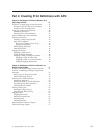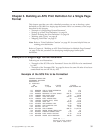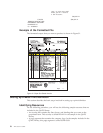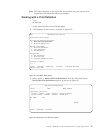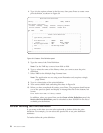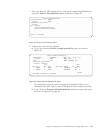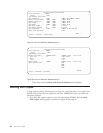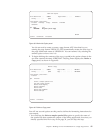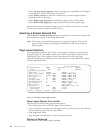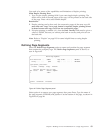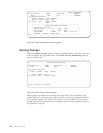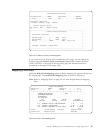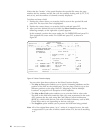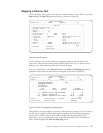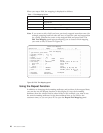
You do not need to create or name a page format; APU does that for you,
naming the page format *DEFAULT. APU automatically creates the first copy in
the page format and names it *ORIGINAL. You can rename it by selecting the
rename option or leave it as it is.
2. To begin defining the contents of the copy, type 10 in the option column in the
row that contains the name *ORIGINAL. Pressing Enter displays the Define a
Copy panel, as shown in Figure 40:
You will use several options on this panel to define the formatting instructions for
your output:
v You could use the Select a sample spooled file option to specify the name of
the spooled file that contains the output of the billing application, but since you
already specified this file in step 2a on page 39, you can skip this step.
Work with Copies
Print Definition . . SUNSD1 Page Format..... *DEFAULT
Library ...... QAPU
Type options, press Enter.
1=Create 2=Change 3=Copy 4=Delete 7=Rename
10=Define
Opt Name Text
*ORIGINAL Original (first copy)
Bottom
F3=Exit F5=Refresh F12=Cancel
Figure 39. Work with Copies panel
Define a Copy
Print Definition . . SUNSD1 Page Format..... *DEFAULT
Library ...... QAPU Copy . . . ..... *ORIGINAL
Type options, press Enter.
1=Select
Opt Function
Select a sample spooled file
Set page layout options
Define field mapping
Define constants
Define boxes
Define page segments
Define overlays
F3=Exit F12=Cancel
Figure 40. Define a Copy panel
Chapter 3. Building an APU Print Definition for a Single Page Format 41



